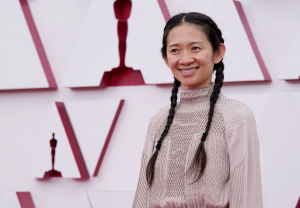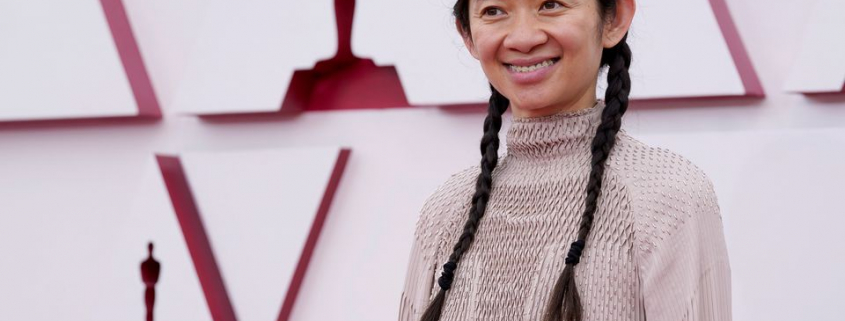Oscars recap: Moving in the right direction with minimal satisfaction

The Oscar’s roll around every spring leaving either abundant confusion or unlimited disappointment. However, this year the Academy Awards seemed to realize a few of their common missteps.
On April 25, the in-person 93rd Academy Awards were held in two in-person locations: the Dolby Theatre in Hollywood and Union Station in Downtown Los Angeles. Participants from abroad celebrated in London and Paris, but there was no zoom-in option for nominees.
Not only did the awards include a few historic moments, the nominations caught the attention of many as well.
The Oscars historically are heavily criticized for their lack of female director nominations, but this year both Emerald Fennell and Chloé Zhao were nominated. It was the first time two women were nominated in the directing category.
Zhao won best director, making her the first Chinese woman and the first woman of color to win the award. Eventually, “Nomadland,” the film she directed and was nominated for, took home the Oscar for best picture as well.
Steven Yeun, star of “Minari,” was the first Asian American actor to be nominated for Best Actor, and Riz Ahmed of “Sound of Metal” was the first Muslim to be nominated in the same category. Surprisingly, or depending on your perspective, unsurprisingly, the lead actor prize went to Anthony Hopkins for “The Father.”
The win came as an upset to many considering the late Chadwick Boseman’s nomination for lead Actor. The show’s producers shuffled the order of awards to the announcement of lead actor category’s winner to last. In many minds, people believed this would mean the award would go to Boseman since he had already won the Golden Globe, and finishing the Oscars by honoring Boseman posthumously would’ve been an emotional end to the night’s program.
Instead, the ceremony chose to honor him by hiring an artist, Andre Oshea, to make a digital artwork redeemable by an NFT (non-fungible token).
Twitter reacted as Twitter does, to Hopkins’ win, expressing anger and saying the Oscars were milking Boseman’s death for viewers.
Boseman’s loss for his role in “Ma Rainey’s Black Bottom” did not leave the movie empty-handed. Hairstylists Mia Neal and Jamika Wilson and makeup artist Sergio Lopez-Riveria won an Oscar in the makeup and hair category. Neal and Wilson are the first Black women to win this award.
Fennell took home best original screenplay for “Promising Young Woman,” and Yuh-Jung Youn took home the Oscar for best supporting actress for her role in Minari, making her the first Korean and second Asian woman to win in the category.
The Oscars moved a few mountains this year — but the world of entertainment must now wait with bated breath to see if this truly means a change in Hollywood.

